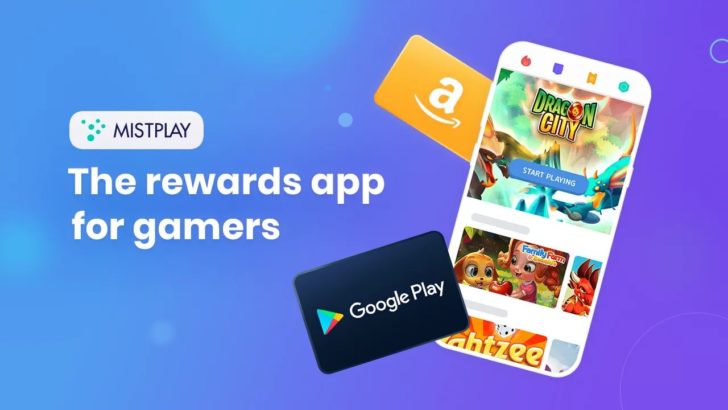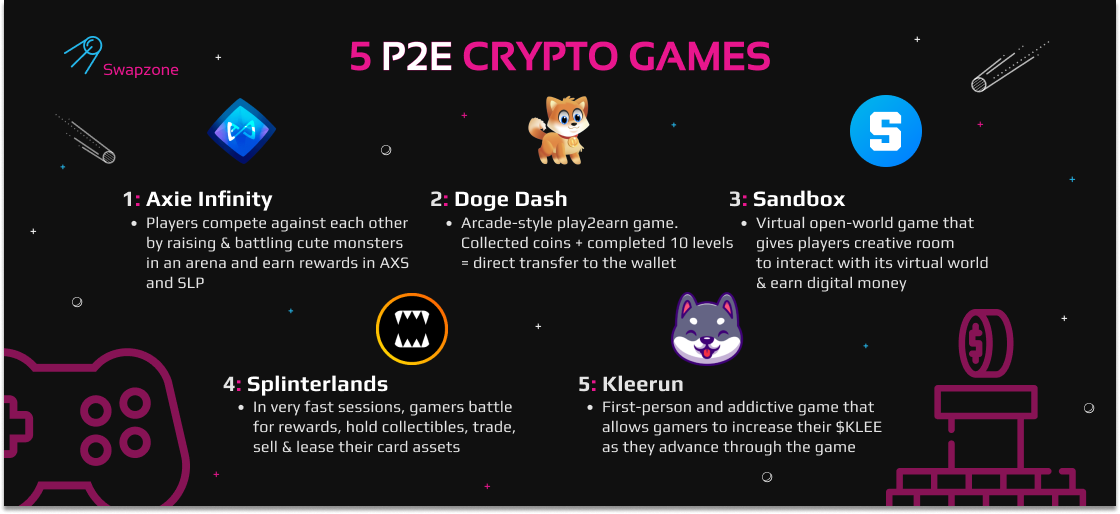Play to earn rewards: be part of the revolution of gaming and earning in one simple step
Play to earn rewards: be part of the revolution of gaming and earning in one simple step
Blog Article
Just How Play-to-Earn Rewards Are Changing the Gaming Experience
The development of Play-to-Earn rewards notes a significant development in the pc gaming landscape, changing the focus from mere home entertainment to genuine financial participation. This makeover invites gamers to spend not only their time yet also their funds, promoting a feeling of ownership and deeper involvement within game environments. As varied demographics embrace these chances, brand-new communities arise, obscuring the lines between leisure and financial investment. This transition increases crucial inquiries about sustainability and the future of video gaming. What effects could this have for the sector and its players?

Advancement of Gaming Models
The landscape of video gaming has actually undertaken a significant change over the decades, progressing from typical pay-to-play models to more ingenious frameworks that prioritize individual interaction and monetization. At first, video games were mostly marketed as standalone items, calling for ahead of time settlements for accessibility. This version, while reliable in creating earnings, usually minimal gamer communication and area structure.

In recent times, the surge of blockchain innovation has introduced play-to-earn systems that basically change gaming characteristics. These versions not only provide a system for players to make rewards yet likewise democratize the pc gaming economic situation, enabling users to possess in-game assets. This advancement shows a broader fad towards community-driven experiences, where programmers and gamers collaborate in forming the gaming landscape, inevitably redefining exactly how worth is viewed in the gaming market.
Advantages of Play-to-Earn Solutions
Opening new methods for player involvement, play-to-earn systems provide an array of benefits that basically improve the pc gaming experience. These systems empower gamers by providing concrete rewards for their effort and time, cultivating a sense of possession and financial investment in the game. This inherent motivation drives players to involve more deeply, exploring video game technicians and neighborhoods that they could or else neglect.
In addition, play-to-earn models equalize pc gaming by leveling the playing field. Gamers from numerous backgrounds can take advantage of on their abilities and creativity, allowing brand-new participants to experience economic benefits that were typically booked for programmers and publishers. This shift motivates a much more varied gamer base, enriching the gaming environment with diverse viewpoints and experiences.
In addition, play-to-earn systems advertise neighborhood building, as gamers team up and contend within decentralized settings. This interaction cultivates social links that improve satisfaction and retention, as gamers feel a sense of belonging.
Last but not least, these systems can lead to enhanced long life for games, as regular gamer involvement often converts right into sustained interest and investment in future models or growths, making sure a dynamic gaming landscape.
Financial Influence on Players
Play-to-earn systems not only boost gamer engagement but additionally have considerable economic effects for individuals involved. These systems enable gamers to monetize their time and abilities, transforming pc gaming from a recreation activity right into a practical income resource. As players gain copyright or in-game possessions that can be traded or marketed in real-world markets, they get financial motivations that can substantially impact their individual economies.
The financial model cultivates a new age of entrepreneurship, as gamers can buy numerous video gaming ecosystems or create techniques to maximize their profits. This possibility for income generation brings in a diverse market, consisting of those in areas with limited work opportunities - play to earn rewards. Many players are currently viewing video gaming not simply as entertainment however as a path to economic empowerment.
Nevertheless, it is vital to recognize the volatility connected with cryptocurrencies and the possibility for market fluctuations to affect incomes. Gamers must navigate these dangers while stabilizing their pc gaming and economic activities. In general, the financial influence on gamers is extensive, improving their relationship with gaming and opening opportunities for wide range production in an increasingly digital economy.
Community Building in P2E Games

Gamers in P2E atmospheres often develop guilds or alliances, producing networks that help with resource sharing, tactical planning, and mutual assistance. These teams commonly take part in participating objectives or competitions, further strengthening their bonds and enhancing the total pc gaming experience. Furthermore, community-driven events, such as tournaments and celebrations, offer to join players, foster camaraderie, and incentivize participation.
In addition, programmers proactively engage with their areas, including comments and ideas that shape video game advancement. This collaborative approach not just equips players yet likewise ensures that video games develop abreast with gamer rate of interests, improving complete satisfaction and lasting engagement. Eventually, neighborhood structure in P2E video games is not simply an attribute; it is a foundational aspect that changes the gaming landscape into a much more comprehensive and interactive environment.
Future Patterns in Gaming
The video gaming industry's advancement is positioned to welcome a number of transformative patterns that will certainly check this redefine player engagement and experience. Among the most considerable trends is the combination of expert system (AI) to create more personalized video gaming settings. AI can evaluate gamer behavior and preferences, permitting developers to customize experiences that reverberate deeply with individual customers.
Furthermore, the development of digital and increased reality (VR/AR) innovations is set to enhance immersion, offering players the capability to interact with electronic worlds in unprecedented methods. This will not just boost gameplay yet also foster social connections, as gamers can team up and compete in shared atmospheres.
In addition, the surge of blockchain technology will remain to influence the pc gaming landscape, allowing true ownership of in-game possessions with non-fungible tokens (NFTs) This trend will equip gamers to trade and monetize official source their gaming experiences, additionally obscuring the lines between gaming and investment.
Verdict
By incorporating economic incentives right into gameplay, gamers are progressively engaged, cultivating a feeling of ownership and investment in electronic atmospheres. As these trends proceed to progress, the blurred lines in between amusement and investment will likely redefine the future of gaming, forming new experiences for players worldwide.
Report this page